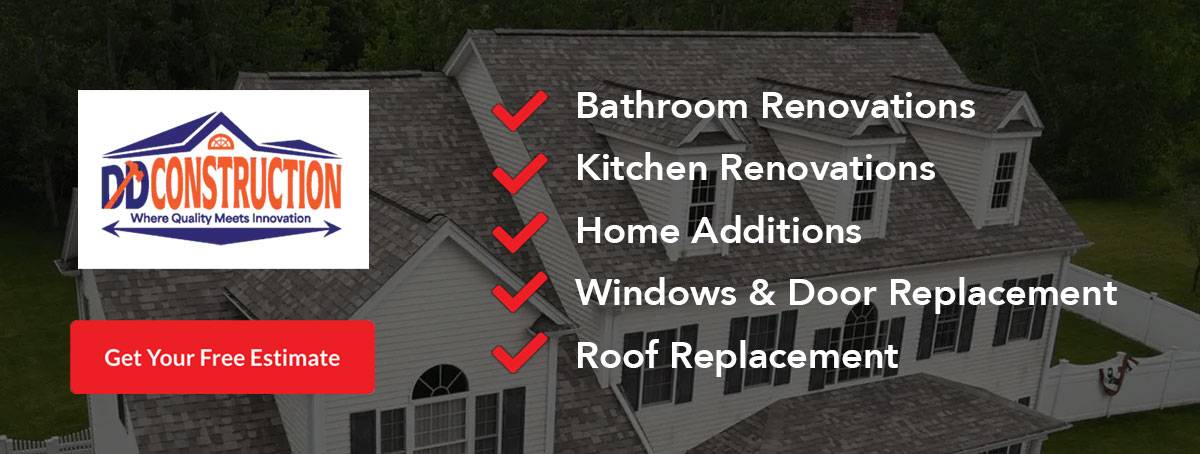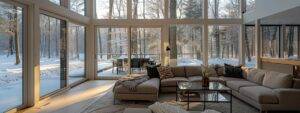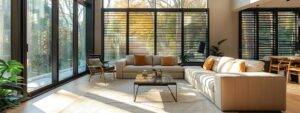Window replacement in Massachusetts is more than a home improvement project—it is an essential investment in the long-term comfort, energy efficiency, and value of a residence during the region’s harsh winter months. For expert assistance and quality installations, homeowners can find reliable resources at ddconstructionma.com. Massachusetts winters can be brutal with heavy snowfall and freezing temperatures that place exceptional strain on a home’s thermal envelope. Homeowners often face rising heating bills, drafts around old windows, and issues such as condensation and mold that hurt both health and property value. Upgrading to modern, energy-efficient windows not only creates a more comfortable living environment but also reduces long-term operating costs.
This article provides a comprehensive guide on the benefits and technical considerations of window replacement in Massachusetts. It explains how new windows increase home energy efficiency, enhance comfort, and raise property value. The discussion covers the differences between various window types and materials, including double-pane versus triple-pane options, vinyl versus wood frames, and the role of low-emissivity (Low-E) coatings. It also delves into technical features like R-value, U-factor, and the advantages of gas fills such as argon. The guide addresses everything from product selection and professional installation to financing options and incentive programs like the Mass Save program and available tax credits, offering actionable insights for homeowners.
By understanding how window replacement tackles issues such as cold drafts, high energy expenditures, and declining home values, Massachusetts homeowners can make decisions that yield a strong return on investment. DD Construction, known for its quality workmanship and reliable service, has completed many projects demonstrating that modern replacement windows are key for minimizing heat loss and enhancing curb appeal in colder climates.
What Are the Key Benefits of Window Replacement for Massachusetts Winters?
Window replacement offers numerous benefits tailored for Massachusetts winters. Modern windows with double or triple panes, inert gas fills, and advanced Low-E coatings substantially reduce heat loss, translating into lower heating bills. They create a robust thermal barrier that keeps cold air outside while retaining warm indoor air and minimizing moisture penetration that can damage window frames.
Improved insulation preserves a home’s structural integrity by reducing drafts and the expansion and contraction of building materials. Additionally, upgraded windows provide superior acoustic insulation that lowers external noise levels. They also deliver a more comfortable indoor environment with evenly distributed temperatures and a noticeable reduction in condensation, which helps prevent mold growth and moisture-related issues.
How Does Window Replacement Improve Home Energy Efficiency?

Modern windows achieve enhanced energy efficiency through superior thermal performance. They are engineered with multiple glazing layers, insulating gas fills like argon or krypton, and advanced coatings, all contributing to higher R-values and lower U-factors compared to older models. Replacing drafty, single-pane windows with these energy-efficient models can reduce heat loss significantly—sometimes responsible for up to 25% of a home’s energy loss.
These windows seal tightly against the frame with advanced weatherstripping and vapor barriers, maintaining indoor heat and protecting against moisture and cold air ingress. In doing so, they reduce overall energy consumption and lower utility bills. Additionally, by requiring less energy for heating, these windows help decrease greenhouse gas emissions. Many products meet Energy Star standards and qualify for rebates or tax credits, further enhancing their benefits.
In What Ways Does New Window Installation Enhance Home Comfort?
New window installation enhances comfort by providing superior insulation that maintains consistent indoor temperatures even during the coldest days. This eliminates cold drafts and uneven heating common with older windows. Additionally, modern windows offer better sound insulation, reducing external noise from winter storms and urban environments.
They also reduce condensation and moisture buildup, preventing problems like mold and damp spots. Enhanced window designs with larger panes and slimmer frames allow for increased natural light, improving both the aesthetic appeal and ambiance of a home. Overall, new windows create a more inviting and energy-efficient living space.
How Can Window Replacement Increase Your Home’s Value in Massachusetts?
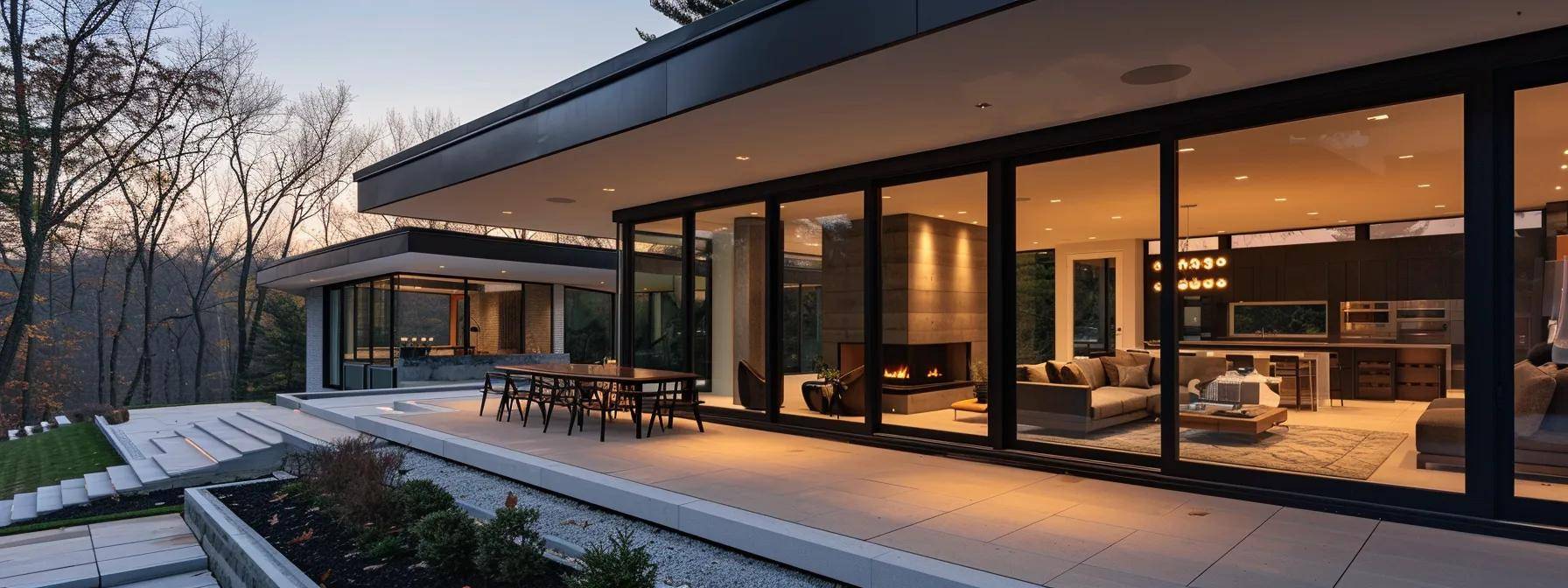
Window replacement is a proven investment that not only enhances a home’s appearance but also its market value. Energy-efficient windows provide a modern, clean look that attracts buyers, while their cost-saving benefits—through lower energy bills and maintenance—make them highly appealing in the competitive Massachusetts real estate market. Upgraded windows are often cited among the top home improvements for a high return on investment (ROI), with estimates of recouping 70% to 80% of costs at resale.
Beyond aesthetics, new windows improve home safety with enhanced locking systems and sturdier materials. They typically lead to corresponding improvements such as upgraded caulking and better weatherproofing, further increasing the home’s durability and marketability.
Which Types of Windows Are Best Suited for Harsh Massachusetts Winters?
Choosing the right window type is crucial for withstanding Massachusetts’ severe winter weather. Homeowners should consider construction, materials, and energy-efficiency features to ensure optimal performance under cold and windy conditions. The decision often narrows down to options like double-pane versus triple-pane windows, and frame materials such as vinyl versus wood, with additional benefits provided by Low-E coatings.
What Are the Differences Between Double-Pane and Triple-Pane Windows?
Double-pane windows, consisting of two layers separated by a spacer and filled with air or argon, have long been the standard for improved energy efficiency. Triple-pane windows add an extra layer and insulating space, resulting in even higher energy efficiency with a lower U-factor and higher R-value. Although triple-pane windows have a higher upfront cost, their superior performance in severe climates often justifies the expense due to greater reductions in heating bills and improved overall comfort.
How Do Vinyl and Wood Windows Perform in Cold Weather?
Vinyl windows are popular in harsh winter climates for their durability, low maintenance, and energy efficiency. Their multi-chambered design reduces heat transfer and minimizes drafts. In contrast, wood windows offer excellent insulation and a classic aesthetic but typically require more maintenance such as periodic painting and sealing. The choice between vinyl and wood depends on balancing performance, aesthetics, and upkeep preferences.
What Are Low-E Coatings and How Do They Help in Winter?
Low-E coatings are thin metallic layers applied to window glass to minimize the transfer of infrared and ultraviolet light. In winter, these coatings reflect interior heat back into the room while reducing heat loss. They also help prevent glare and keep window surfaces warmer, reducing condensation. Combined with double or triple glazing and inert gas fills, Low-E coatings play a critical role in enhancing window performance and lowering heating bills.
How Do Energy-Efficient Window Features Help Combat Cold Massachusetts Weather?
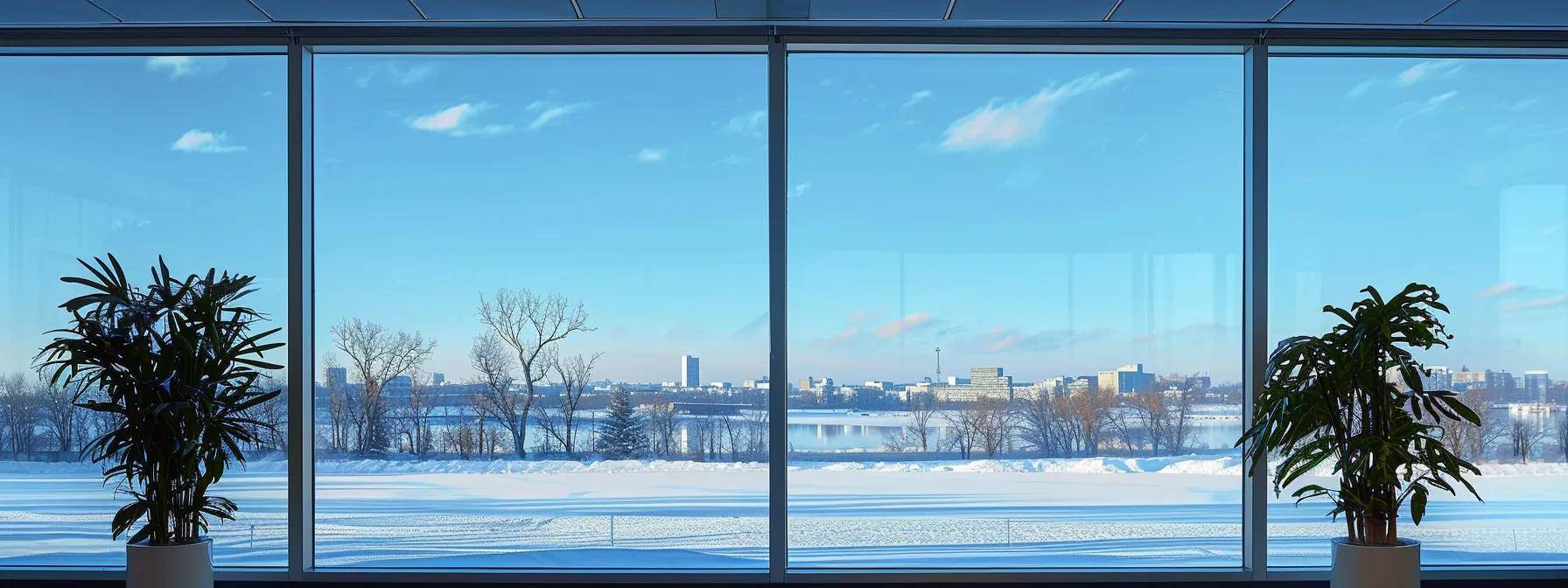
Energy-efficient windows incorporate several features that work together to combat cold weather. Key among these are the R-value and U-factor, which indicate a window’s insulating capacity and heat transfer rate. Additional components such as argon gas fills and high-quality seals further improve performance by reducing heat loss, making the indoor environment more stable and comfortable.
What Is R-Value and U-Factor in Window Insulation?
The R-value measures a window’s resistance to heat flow, while the U-factor indicates the rate of heat loss. High R-values and low U-factors are desirable for reducing energy consumption. Modern windows use multiple panes, inert gas fills, and advanced coatings to achieve better ratings than standard windows, resulting in lower heating bills and improved indoor comfort.
How to Choose Energy Star Certified Windows for Massachusetts Homes?
Energy Star certified windows meet stringent energy efficiency standards and are an excellent choice for Massachusetts winters. Homeowners should look for low U-factor ratings and high Solar Heat Gain Coefficients (SHGC) appropriate for the local climate. These windows are often backed by rebates or tax incentives, making them a smart investment for both energy savings and enhanced comfort.
How Do Argon Gas Fills and Sealing Improve Window Performance?
Argon gas fills, used between the panes of double or triple-glazed windows, act as an insulating barrier that reduces heat transfer. Combined with precise sealing techniques that prevent air leakage, these features significantly lower the window’s U-factor and improve overall performance. The result is a more consistent indoor temperature with lower heating bills.
What Is the Window Replacement Process for Massachusetts Homeowners?
A well-executed window replacement process ensures that the new windows deliver their full energy-saving and comfort-enhancing potential. The process begins with an initial inspection to assess the condition of existing windows and identify any issues such as water damage or outdated frames. This is followed by the removal of the old windows, preparation of the openings, and installation of the new units with precision to ensure a tight, weatherproof fit.
What Are the Steps Involved in Professional Window Installation?
Professional installation involves several key steps: • Removal of old windows with care to protect the surrounding structure. • Preparation of the opening through cleaning, repairs, and application of weather-resistant barriers. • Installation of new windows using high-quality shims, fasteners, and insulation materials to ensure a robust seal. • Sealing and waterproofing with advanced caulking and weatherstripping. • A thorough post-installation inspection to confirm proper operation and sealing.
How to Choose a Reliable Window Replacement Contractor in Massachusetts?
Homeowners should select a contractor experienced in handling projects in harsh winter climates. Key factors include licenses, certifications (such as ENERGY STAR or NFRC certifications), years of experience, and positive customer reviews. Contractors should offer clear project timelines, transparent pricing, and robust warranties, ensuring a seamless and effective installation.
What Are Best Practices to Ensure Proper Window Sealing and Weatherproofing?
Best practices for sealing include using high-quality, weather-resistant sealants and foam insulation to create a continuous barrier around the window. Regular inspections and timely repairs of caulking and seals are essential to maintain the window’s efficiency over time and protect the home from drafts and moisture.
How Much Does Window Replacement Cost in Massachusetts and What Financing Options Are Available?
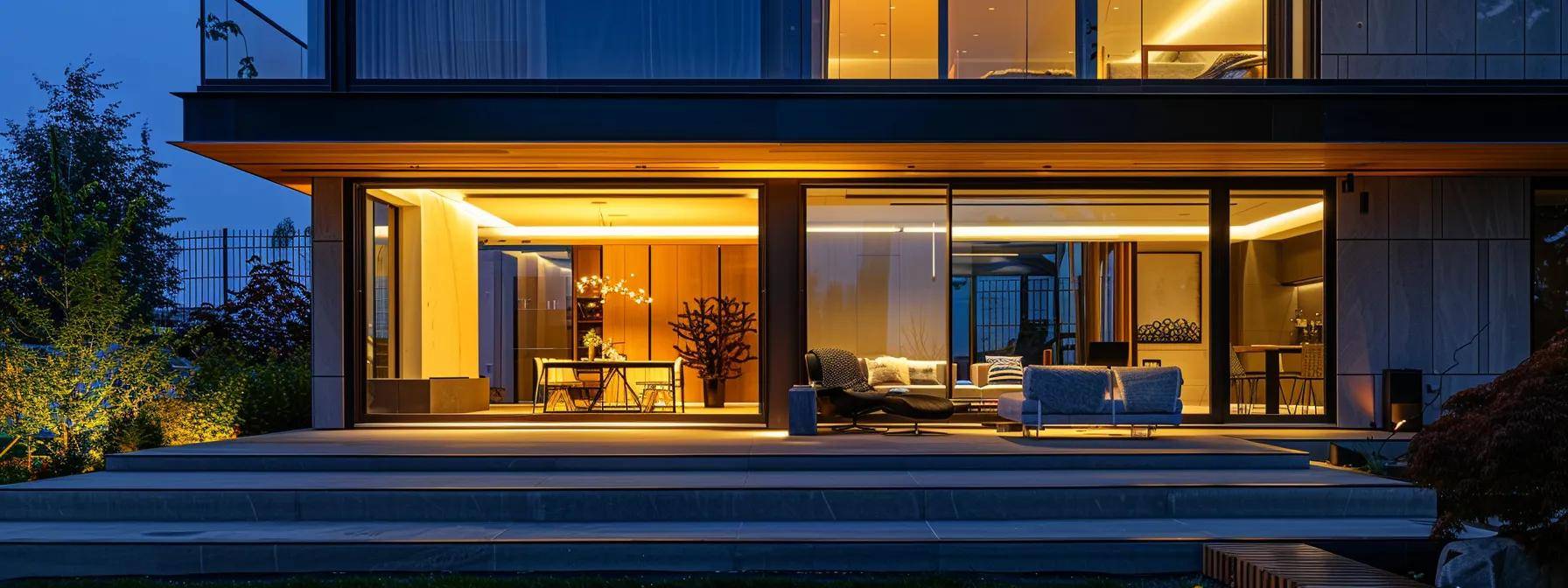
Window replacement costs in Massachusetts vary depending on the window type, materials, and additional features like advanced Low-E coatings or triple-pane technology. Prices typically range from $500 to $1,200 per window, though premium materials and custom installations can drive costs higher. Despite the initial outlay, long-term energy savings and increased home value often justify the investment.
What Factors Affect the Cost of Window Replacement in Massachusetts?
Several factors influence cost: • The type of window (double-pane, triple-pane, bay, or bow window). • Material choices such as vinyl, wood, fiberglass, or composite. • Custom designs and high-end finishes like Low-E coatings and gas fills. • Labor costs for professional installation. • Additional expenses for removal, disposal, and repairs to surrounding structures.
What Financing and Incentive Programs Can Help Reduce Costs?
Massachusetts homeowners can leverage financing options and incentive programs to reduce upfront costs. Contractors such as DD Construction may offer financing plans, and programs like Mass Save, federal tax credits, and state rebates for Energy Star certified windows can lessen the financial burden while accelerating energy savings and ROI.
What Is the Return on Investment (ROI) for Window Replacement in Cold Climates?
The ROI of window replacement is measured through immediate energy savings, lower heating bills, and increased home resale value. Studies indicate that energy-efficient windows can boost resale value by 5–10% and help recover 70–80% of the investment cost at resale. The reduction in heating bills, decreased maintenance costs, and enhanced durability contribute to ongoing savings over the life span of the windows.
What Are Common Questions About Window Replacement for Massachusetts Winters?
Many homeowners have questions about the window replacement process, energy efficiency improvements, and overall project timelines. Addressing these questions helps ensure an informed decision and a smooth installation process.
How Long Does Window Replacement Take in Massachusetts?
A typical window replacement project takes one to three days for an average-sized home, though complex projects or larger homes may require up to a week. The timeline depends on the number of windows, project complexity, and weather conditions. Clear communication with the contractor is key to minimizing disruptions.
How Do New Windows Reduce Heating Bills During Harsh Winters?
Modern windows reduce heating bills by providing superior insulation that prevents drafts and heat loss. The combination of multiple glazing layers, inert gas fills, and Low-E coatings ensures stable indoor temperatures, reducing the load on heating systems and lowering energy consumption.
What Maintenance Is Required for Energy-Efficient Windows?
Energy-efficient windows require minimal maintenance. Regular cleaning of the glass, annual inspections of seals and caulking, and prompt repairs of any signs of wear are recommended. These simple practices help maintain the windows’ effectiveness and prolong their lifespan.
Why Choose Massachusetts Weatherproof Windows for Your Winter Window Replacement Needs?
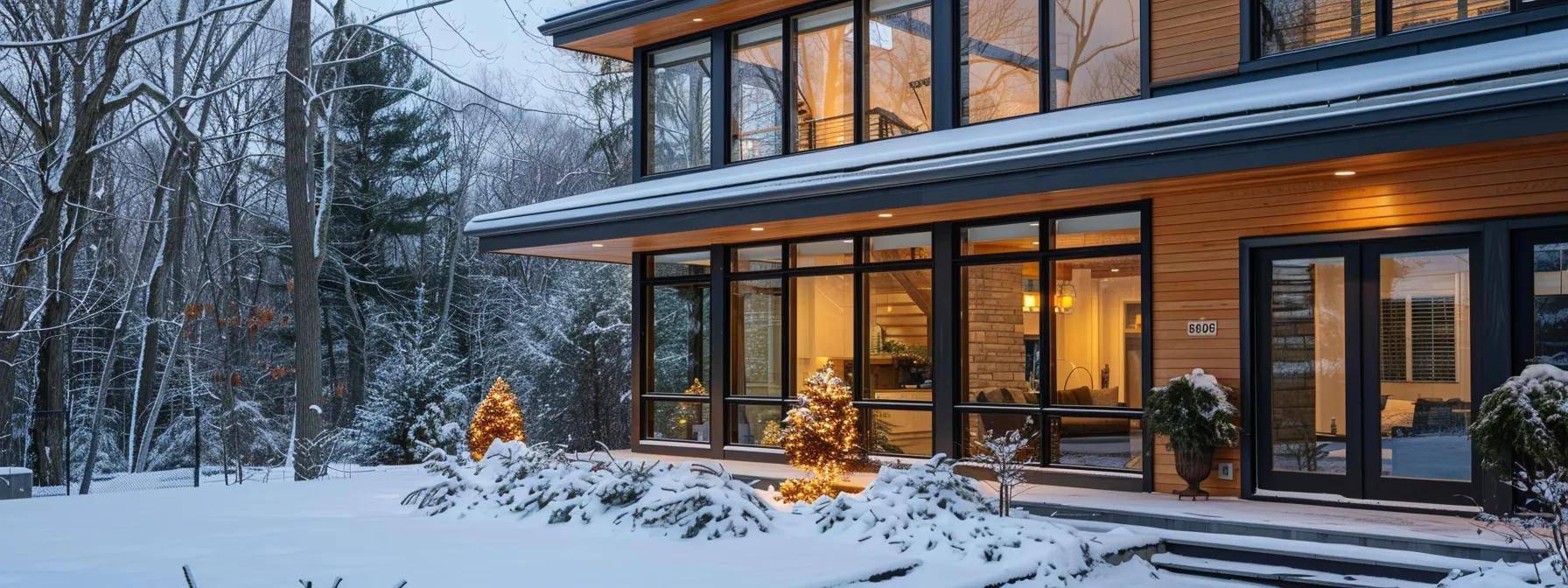
Massachusetts Weatherproof Windows (MWW) is renowned for delivering window replacement solutions designed to withstand harsh New England winters. Their products combine durability, energy efficiency, and aesthetic appeal, providing lasting comfort and significant energy savings. MWW addresses the unique challenges of winter weather with robust insulation, advanced glazing, and precise installation techniques.
How Does MWW’s Expertise Address Massachusetts Winter Challenges?
MWW leverages state-of-the-art technology and years of experience to meet the challenges of Massachusetts winters. Their products incorporate triple-pane glass, argon gas fills, and Low-E coatings for superior thermal insulation. Precise installation ensures windows are perfectly sealed to prevent drafts and moisture, protecting the home from condensation and water damage.
What Warranty and Support Does MWW Offer for Window Replacement?
MWW provides robust warranties covering material defects and installation workmanship, offering reassurance in Massachusetts’ unpredictable climate. Their dedicated customer support team provides expert maintenance tips and prompt assistance with any issues, ensuring long-term satisfaction and protection of the investment.
What Do Massachusetts Homeowners Say About MWW’s Services?
Testimonials from local homeowners highlight significant reductions in heating bills and noticeable improvements in indoor comfort after installing MWW windows. Customers appreciate the professional installation, effective energy savings, and excellent customer service provided by MWW, reinforcing their reputation in the competitive Massachusetts market.
| Feature | Description | Benefit | Comparison Value |
|---|---|---|---|
| Window Pane | Double-pane vs. Triple-pane | Higher insulation, lower heat loss | Triple-pane reduces loss by up to 30% |
| Gas Fill | Argon or Krypton | Enhanced thermal barrier | Argon gas improves R-value by ~10–15% |
| Low-E Coating | Reflects infrared radiation | Retains interior heat | Reduces energy loss by up to 25% |
| Frame Material | Vinyl vs. Wood vs. Fiberglass | Affects durability and maintenance | Vinyl offers low maintenance compared to wood |
| Installation Method | Professional vs. DIY | Ensures proper sealing and performance | Professional installation ensures optimal performance |
| Sealing & Weatherproofing | Quality caulks and weatherstripping | Minimizes air and water infiltration | Proper sealing lowers drafts by nearly 90% |
| Warranty & Support | Extended warranties | Long-term peace of mind | Comprehensive warranties up to 20 years |
Before the table, it is important to note that choosing energy-efficient windows with features like advanced glazing, gas fills, and superior frame materials can markedly improve a home’s performance during Massachusetts winters. The table above outlines key attributes and their benefits to guide homeowners in selecting the best option.
After reviewing the table, it is clear that investing in windows with enhanced insulation and proper installation techniques can lead to improved energy efficiency, reduced heating costs, and increased home value. Homeowners benefit from significant performance improvements and long-term savings by choosing products that meet stringent energy-efficiency standards and ensuring professional installation.
Frequently Asked Questions
Q: What factors should I consider when choosing new windows for winter in Massachusetts? A: Consider window materials, insulation ratings (R-value and U-factor), the number of glass panes, Low-E coatings, and the type of gas fill used. Professional installation, along with reviews, warranties, and Energy Star certification, is crucial for optimal performance.
Q: Can new windows significantly lower my heating bills during winter? A: Yes, modern windows reduce heating bills by preventing heat loss with features such as double or triple glazing, Low-E coatings, and gas fills. They help maintain a consistent indoor temperature, reducing the burden on heating systems and saving 10–20% on annual heating costs.
Q: How long does the entire window replacement process usually take? A: Typically, the process takes one to three days for an average home, though larger or more complex projects may take up to a week due to the number of windows and any necessary repairs.
Q: Are there financing options or incentives available for window replacement in Massachusetts? A: Yes, many local contractors offer financing plans, and state and federal programs—such as the Mass Save initiative, tax credits, and rebates for Energy Star certified windows—can help offset the upfront costs.
Q: What maintenance is required for my new energy-efficient windows? A: Regular cleaning, annual inspections of seals and caulking, and prompt repairs of any wear are recommended. These practices help ensure the windows perform at their best and last for many years.

